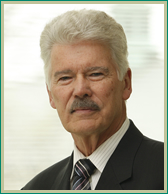
Succeeding in Earth School
|
 |
|
| Dr. Charles P. Mitchel Associate |
“The longest journey you will ever make in your life is from your head to your heart.” —Gary Zukav, The Heart of the Soul, 2002
In The Wise Leader: Doing the Right Things for the Right Reasons, Paul Houston and Stephen Sokolow contended that everyone attends school at all times throughout life. People are on the earth for a finite amount of time, and they learn lessons daily. They called this notion of constant school attendance “Earth School.” Lessons in Earth School differ from those taught in traditional school. In traditional school, the three R’s—Reading, ‘Riting, and ‘Rithmetic—comprise the earliest formal academic lessons and could culminate in a doctorate in nuclear fusion, or beyond. But the curriculum in Earth School is not one of specific lessons. Earth School is not a curriculum of the head, but rather a curriculum of the heart. Your teacher is infinitely patient. It is impossible to fail Earth School, but you will have to repeat the class if you don’t learn the lessons. This could take years, a lifetime, or many lifetimes. How quickly one learns depends on how one chooses to learn.
In The Heart of the Soul, Gary Zukav posited that Earth School provides two methods of learning. The first is through love and trust; the second, through fear and doubt. Those choosing the first option, love and trust, most often find their lives fulfilling, gratified, and less painful. In contrast, people who choose to learn by fear and doubt usually find difficulty, thanklessness, and pain and suffering. There are many lessons to be learned in Earth School. Here are three major lessons: creating loving, long-lasting relationships; developing an abundance mentality; and leaving a legacy.
Lesson #1: Creating Loving, Long-Lasting Relationships
The Pew Research Center in Washington, D.C., which studies social trends in the United States, found that people want to be married and believe that marriage is a forever proposition. Moreover, those who have never married want to marry “for love.” The 50% divorce rate suggests that marriage isn’t working, however, further implying that, overall, people are attempting to learn out of fear and doubt rather than love and trust. For instance, a love-and-trust mentality replaces anger with forgiveness, a healing agent. Negative thoughts and jealousy brought about by the fear and doubt related to an impending loss, for example, can be replaced with honest trust and strong self-esteem. Revenge sought for a perceived personal insult can be rectified by love and trust through mercy and compassion. Finally, people who learn life’s lessons through fear and doubt often play the victim; those who focus on love and trust learn to say “I am responsible for my own positive thoughts and actions.” Those are the people who pass the Earth School curriculum with flying colors. Those attempting to pass the course through fear and doubt will receive an in-progress rating and will be given another opportunity to develop long-lasting loving relationships.
Lesson #2: Developing an Abundance Mentality
The opposite of “abundance” is “scarcity.” In Earth School, understanding that the world does, in fact, provide sufficient resources for all to share is the life lesson. Resources can include food, water, clean air, gasoline, education, work, or whatever is required for survival. Success in having the necessary resources—however the individual defines success—can be had through love and trust, but not through fear and doubt. Important to each person is knowing when enough is enough, sharing what is abundant, and not coveting what others have. In The Seven Habits of Highly Effective People, Stephen Covey described this understanding as an “abundance mentality,” the willingness to recognize and appreciate what the person already has, leading to a lesson learned about gratitude, knowing when enough is enough, and not begrudging others their success.
Lesson #3: Leaving a Legacy
There are four basic human needs: physical, emotional, mental, and spiritual. Physical needs include the basics of food, shelter, clothing, and economic well-being; emotional needs include developing and participating in loving relationships; and mental needs are centered on continuing to learn and grow. Equally or perhaps even more important is the spiritual need: the need for meaning and purpose in this life on earth. Leaving a legacy manifests the spiritual need.
In The Death of Ivan Ilyich, Leo Tolstoy painted the picture of a man who made choices without considering his legacy. As he watched another man die—and knowing that he too was doomed due to ill health—Ivan Ilyich said, “What if my whole life has been wrong?” He then set about correcting the errors he had learned from fear and doubt, modifying his legacy to reflect love and trust. In contrast, Willy Loman, in Arthur Miller’s Death of a Salesman, chose not to learn through love and trust, deciding instead to end his own life prematurely when his vision of the American Dream was smashed by the reality of the rapid decline in his sales career and negative family dynamics.
Succeeding in Earth School lessons of creating loving, long-lasting relationships, developing an abundance mentality, and leaving a legacy goes a long way to experiencing joy and peace in life. The preferred method of learning the Earth School curriculum is rooted in love and trust. Love and trust means giving up the attempt to control everyone and everything, being willing to serve others, constantly learning and improving in all aspects of life, living one’s chosen value system, and embracing the meaning and purpose of life obtained through spirituality. Attributed to Ralph Waldo Emerson is the following summary of the lessons learned in Earth School that lead to success:
- To laugh often and much;
- To win the respect of intelligent people and the affection of children;
- To earn the appreciation of honest critics and endure the betrayal of false friends;
- To appreciate beauty and find the best in others;
- To leave the world a bit better, whether by a healthy child, a garden patch, or a redeemed social condition;
- To know that even one life has breathed easier because you have lived.
This is to have succeeded.
![]() Center for Empowered Leadership ®
Email: info@cfel.org
Phone: 1.609.259.7911
Center for Empowered Leadership ®
Email: info@cfel.org
Phone: 1.609.259.7911
